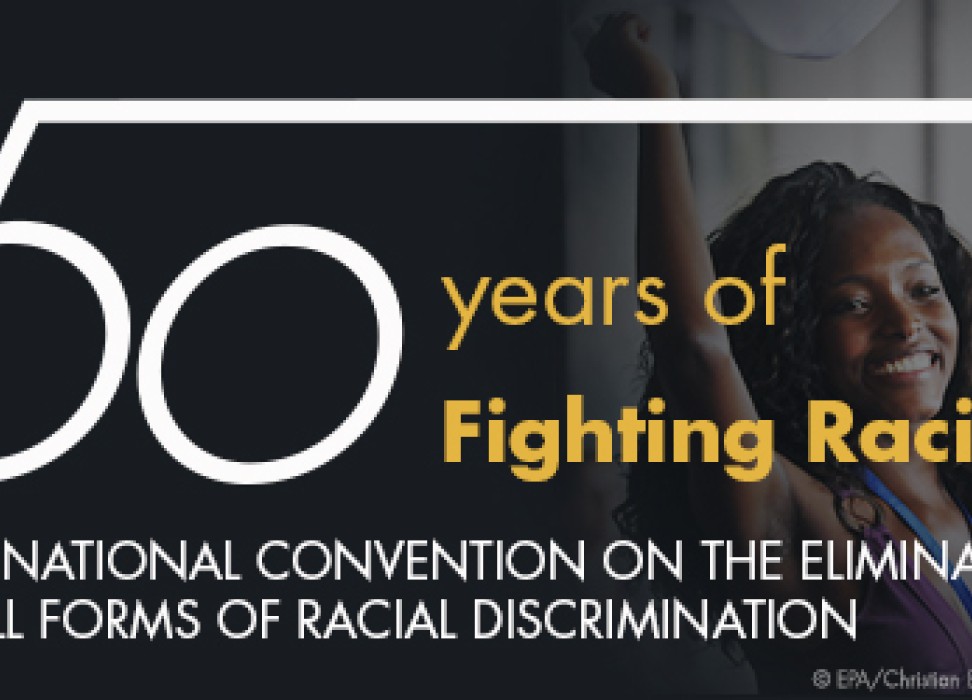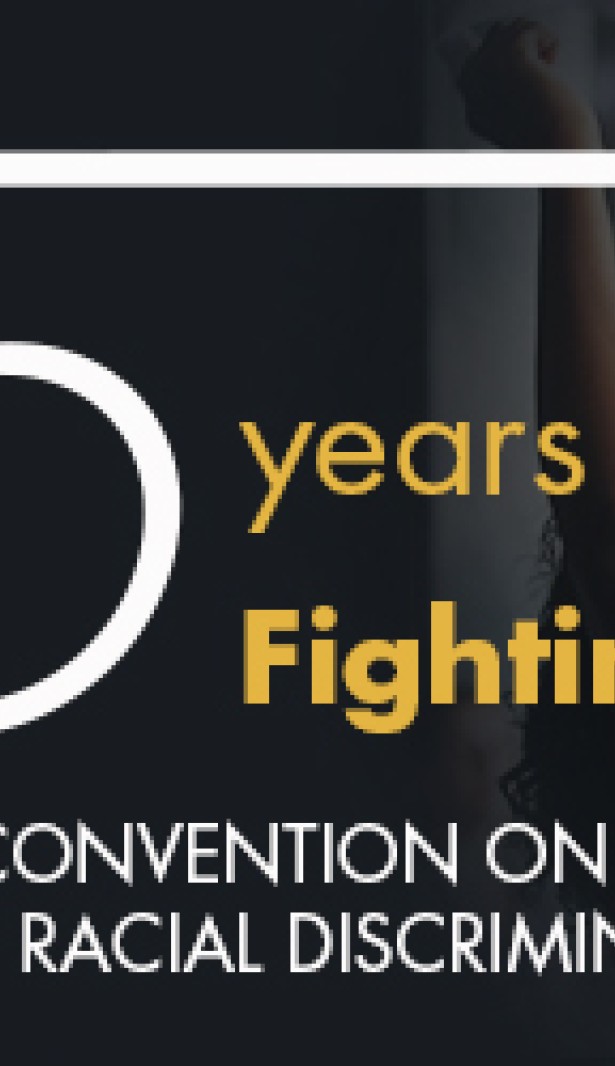ICERD: Fighting racism for 50 years and beyond
21 December 2015

Fifty years ago today, a treaty was adopted would provide a power weapon in the fight against racism and discrimination and forever influence all human rights laws that came after it.
The International Convention on the Elimination of All Forms of Racism and Discrimination (ICERD) was adopted 21 December 1965, making it the oldest international human rights law. It was forged at time of great civil unrest in parts of the world. The drafting took place during the civil rights movement in the United States, whose Civil Rights Act was passed just prior to its adoption. Apartheid was at its height in South Africa, with the Sharpeville Massacre bringing the cruelty of the regime into international focus. And many countries in Africa were doing away with colonialism for independence.
ICERD has been a way to allow groups and individuals an opportunity to address issues of discrimination in an international setting. It has helped to shine a much needed spotlight onto the subject around the world.
Yet, despite this assistance, racism continues to plague societies, and governments must be reminded of their duty to combat it, said UN High Commissioner for Human Rights Zeid Ra’ad Al Hussein.
“I hope we can use the weight of this anniversary to reaffirm our commitment to the rights which governments themselves must maintain as duty bearers and not to stoke the lowest and basest instincts in human beings for the sake of narrow political gain,” he said.
ICERD has been called “a living instrument” and has expanded to cover differing forms of racial discrimination. No region is immune from racism, said UN Secretary-General BAN Ki-Moon, which makes ICERD as relevant as ever.
“Whenever we are confronted with behaviour that challenges the inherent equality of all human beings, ICERD provides the guideposts to keep us on the road of unity through diversity,” he said.
21 December 2015




